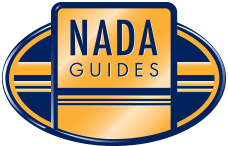Owning a camper, whether it's a motorhome, travel trailer, or RV, can be a dream come true for many people who love to travel and explore the great outdoors. However, like any other major purchase, there are pros and cons to consider before deciding to buy an RV. In this article, we will explore the various advantages and disadvantages of owning a camper, as well as the different types of campers available in the market.
Cons of Owning an RV / Camper
Many Other Costs
One of the cons of owning an RV is the additional costs associated with it. Apart from the initial purchase price, there are other expenses to consider such as insurance, maintenance, fuel, and camping fees. These costs can add up quickly, especially if you plan to travel frequently or for extended periods of time.
RV Storage
Another factor to consider is RV storage. Finding a suitable storage facility can be challenging depending on the RV type you have. RVs are considerably larger than other vehicles, and not all neighborhoods or apartment complexes allow for RV parking. Renting storage space for your RV can also be an added expense.
RV Camping
While RV camping allows you to bring your comfortable home on wheels wherever you go, there can be some downsides to consider. Limited availability at popular campgrounds or campsites during peak season can make it difficult to find a spot. Additionally, some camps might charge extra fees for RVs, or have restrictions on the length or height of the RV allowed on their grounds.
Pros of Owning an RV / Camper
Travel Where You Want
One of the biggest advantages of owning a camper is the freedom to travel where you want when you want. With an RV, you are not bound by hotel reservations or flight schedules. You have the flexibility to go wherever you please, whether it's a scenic national park, a beautiful beach, or a charming small town.
Types of RVs
When it comes to campers, there are various types to choose from depending on your needs and preferences. Motorhomes, travel trailers, and fifth wheels are just a few examples. Motorhomes offer the convenience of having a self-contained living space, while travel trailers can be towed by a separate vehicle. Fifth wheels are known for their spaciousness and ease of towing. Finding the right type of RV that suits your lifestyle is one of the benefits of owning one.
RVs Come with Many Amenities
Another advantage of owning an RV is the comfort and convenience it provides. RVs often come equipped with many amenities such as a kitchen, bathroom, bedroom, and living area. Depending on the type of RV or camper, you can even find features like air conditioning, television, and a generator. These amenities make camping trips more enjoyable and provide a home-away-from-home experience.
RVs and Campgrounds
Renting an RV
If you're not ready to own an RV, renting one can be a great alternative. Renting an RV allows you to experience the RV lifestyle without a long-term commitment. There are many RV rental companies available that offer different types of RVs for various durations. This can give you a chance to see if RV travel is something you really enjoy before investing in one.
RV Lifestyle
For those who enjoy the RV lifestyle, owning an RV opens up a world of possibilities. You can join a community of fellow RVers and participate in RV clubs and events. The RV lifestyle offers a unique way to explore the country, meet new people, and create lasting memories. It's a great way to escape the hustle and bustle of everyday life and connect with nature.
RV Rental
Even if you own an RV, there might be times when renting an RV makes more sense. Perhaps you have friends or family visiting and they need extra sleeping space, or you want to try out a different type of RV for a specific trip. Renting an RV can give you the flexibility to choose the right vehicle for your needs without the long-term commitment of ownership.
In conclusion, owning a camper has its pros and cons. While it offers freedom and flexibility to travel where you want and enjoy the comforts of home on the road, there are also additional costs and considerations to keep in mind. Whether you decide to buy an RV, rent one, or explore other camping options, it's important to weigh the benefits and drawbacks depending on your personal preferences and travel goals.
Conclusion
In conclusion, owning a camper, whether it's an RV, motorhome, or travel trailer, opens up a world of adventure, but it's essential to consider the pros and cons.
On the downside, there are costs beyond the initial purchase. Insurance, maintenance, fuel, and camping fees can quickly add up, particularly for those planning frequent or extended trips. Finding suitable storage for an RV can be challenging, as not all neighborhoods or housing complexes permit RV parking, potentially leading to additional expenses for renting storage space. Additionally, the joys of RV camping can come with limitations, especially during peak seasons, when popular campgrounds often fill up fast, leaving limited spots and sometimes imposing extra fees or size restrictions.
On the positive side, owning an RV offers unparalleled freedom. You're no longer tied to hotel reservations or flight schedules; instead, you have the open road and endless possibilities at your fingertips. Furthermore, there's a wide variety of RV types to choose from, each tailored to different lifestyles and preferences. Whether it's a motorhome, travel trailer, or fifth wheel, there's something for everyone. RVs are like miniature homes on wheels, equipped with kitchens, bathrooms, bedrooms, and more. Some even boast luxuries such as air conditioning, TVs, and generators, making your camping experiences comfortable and enjoyable.
If the prospect of ownership seems daunting, renting an RV offers a taste of the lifestyle without a long-term commitment. Numerous rental companies provide diverse RV types for varying durations. For those who embrace the RV lifestyle, it becomes a gateway to adventure, a community of like-minded travelers, and a deeper connection with the beauty of nature. It's an escape from the daily grind, an opportunity to create cherished memories, and a chance to explore the extraordinary.
Ultimately, whether you choose to own an RV, occasionally rent one, or explore alternative camping options, the key is aligning your choices with your unique preferences and travel aspirations.
FAQs
Q: What are the different types of RVs available?
A: There are various types of RVs to choose from, including motorhomes, travel trailers, fifth wheels, pop-up campers, and more. Each type has its own features and advantages.
Q: What are the costs associated with owning an RV?
A: Besides the initial purchase cost, RV ownership comes with many other costs. You'll need to consider expenses such as insurance, maintenance costs, fuel consumption, campground fees, RV storage fees, and more.
Q: Is RVing suitable for full-time travel?
A: Many people choose to travel full-time in their RVs and enjoy the freedom and flexibility it offers. However, it requires careful budgeting, planning, and a sense of adventure.
Q: Do I need to store my RV somewhere?
A: Yes, if you don't have enough space to park your RV at home, you'll need to find a dedicated storage facility to store your RV when it's not in use.
Q: What should I know before buying an RV?
A: Before buying an RV, it's important to consider factors such as your budget, the type of RV that suits your needs, maintenance requirements, storage options, and more. Researching and understanding the RV lifestyle is crucial.
Q: Can I rent an RV before deciding to buy one?
A: Yes, many RV rental companies, like RVshare, offer rental services. Renting an RV before buying can help you determine if the RV lifestyle is right for you without the commitment of ownership.
Q: What maintenance costs are associated with owning an RV?
A: Regular maintenance is essential for keeping your RV in good condition. You'll need to budget for routine servicing, oil changes, tire replacements, propane refills, and other maintenance expenses.
Q: Are there any drawbacks to owning an RV?
A: While owning an RV can be exciting, there are some cons to consider. It requires regular maintenance, storage fees, and additional costs like insurance and fuel consumption. Depending on where you live, finding suitable places to park or camp with your RV may also be a challenge.







